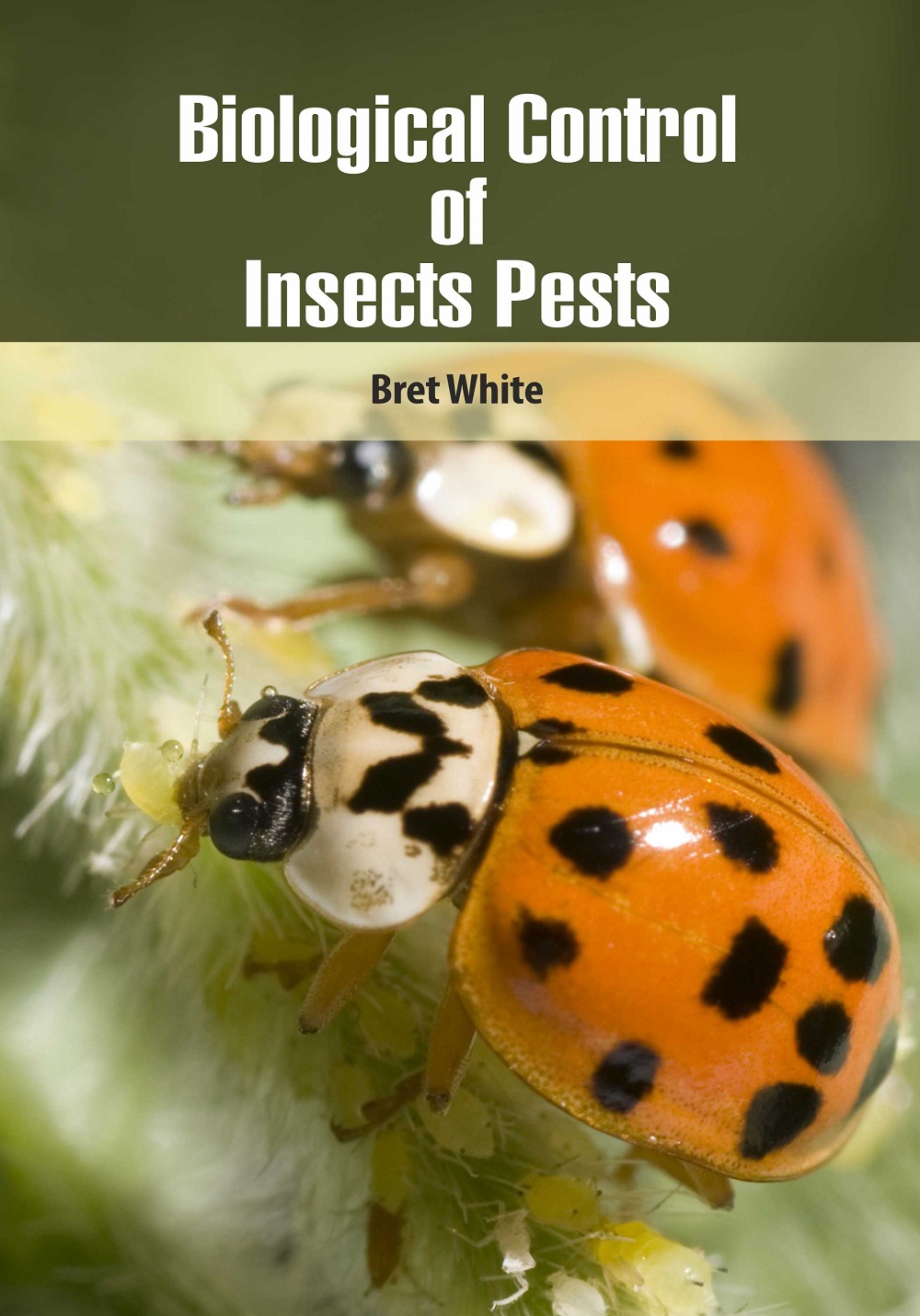Biological Control of Insects Pests Bret White
- ISBN: 9781788821452
- Edition: 1st
- ©Year: 2020
- List Price : 165
About the Book
The Book"Biological Control of Insects Pests"illustrates how to control biologically the insect's pests. It is important to know when numbers are great enough to justify artificial control and to evaluate the effectiveness of control. The text has been organized very systematically to meet the long-felt needs of increasingly large number of readers. Biological control is the use of living organisms to maintain pest populations below damaging levels. Natural enemies of arthropods fall into three major categories: predators, parasitoids, and pathogens. Predators catch and eat their prey. Some common predatory arthropods include ladybird beetles, carabid (ground) beetles, staphylinid (rove) beetles, syrphid (hover) files, lacewings, minute pirate bugs, nabid bugs, big-eyed bugs, and spiders. Biological control is the beneficial action of parasites, pathogens and predators in managing pests and their damage. Biocontrol provided by these living organisms, collectively known as natural enemies. It is especially important for reducing the number of pest insects and mites. Biological control is the beneficial action of parasites, pathogens, and predators in managing pests and their damage. Biocontrol provided by these living organisms, collectively called "natural enemies," is especially important for reducing the numbers of pest insects and mites. Use of natural enemies for biological control of rangeland and wildland weeds is also effective. Plant pathogens, nematodes, and vertebrates also have many natural enemies, but this biological control is often harder to recognize, less well understood, and/or more difficult to manage. Conservation, augmentation, and classical biological control are tactics for harnessing natural enemies' benefits. The book will be highly useful for general entomologists, students of agricultural entomology, teachers and research scholars of zoology, especially entomology.
Contents: 1. Introduction, 2. Biological Control Agents and Insect Pathogens, 3. Principles and Scope of Biological Control and Parasitoids, 4. Classical Biological Control and Augmentative Pest Biocontrol, 5. Biology, Adaptation, Host Seeking Behaviour of Predatory and Parasitic Groups oflnsects.
Bret White is an agricultural entomologist, with many years of research experience in the field of biological control of crop pestsin tropical countries, mainly in Eastern/Southern Africa. He has served in several leading national/international organizations. His focal crops for bio control include cereals, legumes, sugarcane, cotton and vegetables. His major areas of interest are to develop production protocols for host insects and potential parasitoids and predators and to evaluate mass produced natural enemies against target pests. Bret White has around 175 Research publications including research papers, book chapters/scientific reviews, technical documents/bulletins, symposia papers and report compilations. Presently, he is engaged in research involving utility of semi chemicals for field application against various dipterous, lepidopterist and coleopterons pest.

